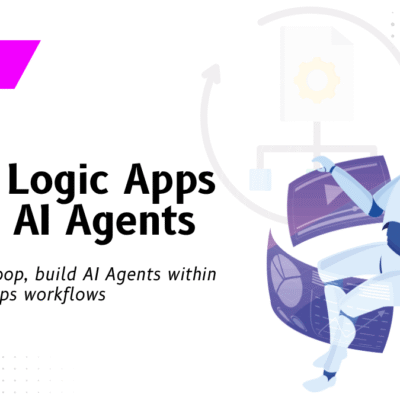Azure Synapse Analytics – Part 1: An Overview

Azure Synapse Analytics is a scalable, cloud-based integrated analytics service that offers insights into data warehouses and big data systems. The four main components that Azure Synapse brings together are – SQL pool and SQL on-demand (used in enterprise data warehousing), Apache Spark (used in Big Data), Synapse Pipelines (used for data integration, ETL and ELT) and Synapse Studio. The Azure Synapse Workspace unifies different components into a single common user friendly interface and provides a unique experience. Azure Synapse also integrates with other Azure services such as PowerBI, CosmosDB, and AzureML. If you have heard of Azure SQL Data Warehouse, then Azure Synapse is the latest enhancement of SQL Data Warehouse. With the announcement of Azure Synapse, Microsoft aims to bridge the gap between data lakes and data warehouses. It also aims to improve the business intelligence and machine learning capabilities of the organization.
Key Features of Azure Synapse Analytics
With the built-in capability to deeply integrate with the different Microsoft Azure technologies, Azure Synapse offers end-to-end cloud data warehousing, machine learning analytics, and dashboards in a single workspace. Therefore, you can quickly ingest the data, transform and query it using SQL. Businesses can also analyze the data using machine learning algorithms and visualize the end result in a rich PowerBI Dashboard.
Image Source: Microsoft Documentation
Centralized Data Management delivering unified experience
Azure Synapse uses Massively Parallel Processing (MPP) technology that allows it to process and manage large amounts of workloads and handle large data volumes in an efficient way. You can manage both data lakes as well as data warehouses as a single unified experience.
Image Source: Microsoft Documentation
Workload Isolation
Workload isolation is a new capability in Azure Synapse Analytics. This capability allows users to manage the execution in case of heterogeneous workloads. You can exclusively reserve resources for a specific workload group along with increased flexibility. At the same time, you can have complete control over the warehouse resources and satisfy business level SLAs.
Data Streaming Ingestion
Azure Synapse Analytics allows you to run queries over streaming data in your data warehousing environment. You can also integrate with Event Hubs and IoT Hubs.
HTAP Implementation
Azure Synapse Analytics uses Synapse Link and Hybrid Transaction/Analytical Processing (HTAP) implementation to achieve real-time data integrations with the Azure databases in your infrastructure. You can get the most-recent data from your databases using this simple, low-cost, cloud-native implementation.
Image Source: Microsoft Documentation
Machine Learning Integration
Azure Synapse Analytics integrates with Azure Machine Learning and the machine learning capabilities. You can predict and score the ML models and generate predictions within the data warehouse itself. You can convert your existing trained ML models into Synapse Analytics representation rather recreating the entire ML model. This helps businesses to save time, money and effort.
Effective Data Sharing
Your teams can share data lake and data warehouse data both internally and externally with Azure Data Share Integration. There is no need to copy or move data across different databases. All the data resides on a single platform!
Integration with Open Data Initiative Compatible Solutions
Azure Synapse Analytics integrates with various solutions that are compatible with the Open Data Initiative that offers data integration and compatibility between Adobe, Microsoft, and SAP technologies such as Microsoft Office, Dynamics 365 and Adobe Customer Experience Platform.
Integration with other Microsoft Technologies
Azure Synapse Analytics (being a Microsoft product) integrates with other Microsoft solutions such as Azure Data Lake, Azure Active Directory, Azure Machine Learning, Azure Blob Storage, Power BI. With this deep integration, businesses can reduce the time to build Business Intelligence (BI) and Machine Learning projects. Data scientists and business analysts can realize the power of building rich dashboards using Power BI in very less time.
How Azure Synapse benefits businesses?
Organizations use different tools to manage, store and analyze their workloads. While this is a complex process, it is time consuming and depends on siloed systems to work together to generate the desired outcome. Things can go awfully wrong when any one of the interconnected systems faces a downtime or any technical problem.
Azure Synapse Analytics offers businesses with a centralized management of the data lakes and data warehouses. Azure Synapse Studio offers a unified workspace for data preparation, data management, data warehousing, Big Data and Artificial Intelligence tasks.
For developers, Azure Synapse Analytics helps them to get meaningful insights into all their data at a single place. One of the biggest benefits is that they need not copy large volumes of data across different enterprise storage systems. Developers can easily learn and use this tool without requiring any additional technical skills.
Visual UI and less coding
With Azure Synapse Analytics, very little coding is involved and the UI is very user friendly. Decision makers with little coding knowledge can easily track the happenings within the business, across the warehouse, BI and analytics.
Compatibility with Programming Languages
Azure Synapse Analytics is compatible with Python, .Net, Java, R, SQL, T-SQL, Scala, Spark SQL. As a result, it increases the suitability of using it for different business analytical tasks.
Built-in security
Azure Synapse Analytics offers the highest level of security for the data keeping in mind the safety and security aspects of the cloud. It offers the latest level of authentication, compliance, encryption, governance, policies and threat detection controls for all assets, dynamic data masking and row-/column-level security to protect sensitive data in real-time.
Limitless Scale
Using Azure Synapse Analytics, data experts can view, organize and query both relational as well as non-relational data in the data lake at faster rates using the native SQL language.
Deeper Insights
With the help of Microsoft Azure Machine Learning (ML) and Power BI capabilities, Azure Synapse helps data engineers and business analysts to build data and complete the tasks efficiently.
This is the first of a series of articles on Azure Synapse Analytics. Stay tuned for the next article on steps to create an Azure Synapse Analytics Workspace using the Microsoft Azure Portal.


